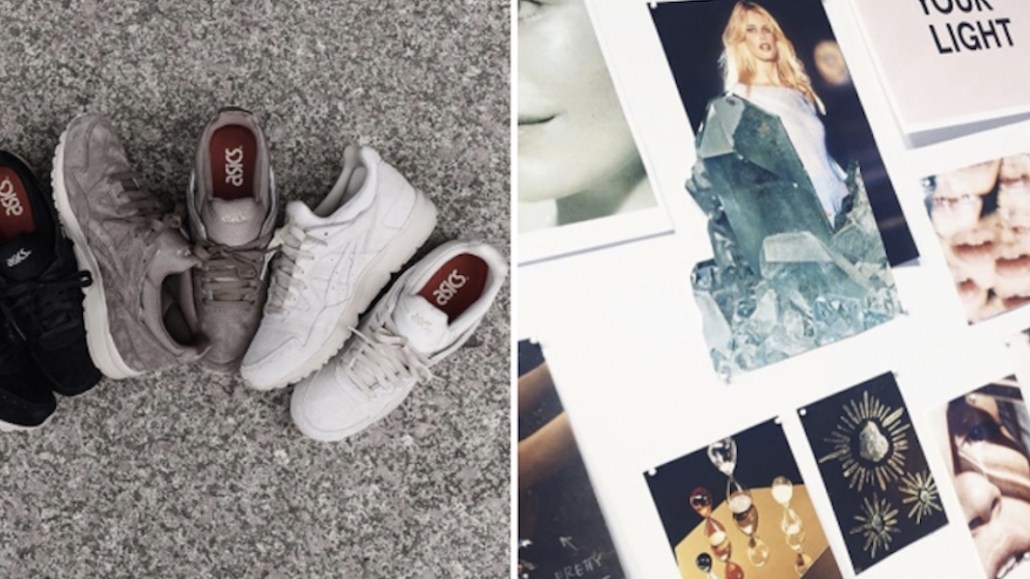Secure your place at the Digiday Media Buying Summit in Nashville, March 2-4
Instagram tests in-app shopping with Kylie Cosmetics, Nike and Huda Beauty

Shopping on Instagram is about to change forever.
On March 19, the social platform announced in a blog post it was launching a beta shopping program with over 20 beauty and fashion brands, including direct-to-consumer players, in which it would test the ability to shop, check out and manage orders within the app. Prior to this, users could only swipe up on a product or image through Instagram Stories and be brought to a brand’s website in order to fulfill a purchase.
During the test, when a user taps on a “View the Product” button, they will see a “Checkout on Instagram” option rather than being taken to an e-commerce site. Once a person enters all of their information within Instagram (which can be saved for future purchases), they can buy directly and manage their orders in the app.
The feature will be rolled out over the course of the next few weeks to mobile users in the U.S. They will be able to check out products by brands including Adidas, Anastasia Beverly Hills, ColourPop, Huda Beauty, KKW Beauty, Kylie Cosmetics, Nike and Ouai Hair. It is worth noting that the brands included in the beta test are some of the most popular on Instagram. For example, Huda Beauty has over 34 million followers, Kylie Cosmetics has just under 20 million followers, and Nike has over 85 million followers. Businesses were selected based on their adoption and performance of shopping on Instagram, according to Paige Cohen, a spokesperson for Instagram. Additionally, Instagram tried to choose brands that reflected a wide variety of products and price points.
The new beta is a significant evolution for a brand that began as a photo-sharing app with an ad-supported revenue model. As Instagram becomes an all-in-one social media-meets-shopping platform, Cohen said the platform will charge a “small fee” to businesses selling through the platform, which will fund programs and products that make checkout possible. That includes credit card processing costs and other transaction-related expenses, she said, but declined to provide further specifics.
Instagram has been on a roll with the launch of several new shopping-related features. In September 2018, the platform added product tags to Instagram Stories through a feature called Explore, as well as the ability to save posts to a “Shopping Collection” to revisit later. It also added product tags to videos, as part of a release dubbed Profile, in November 2018. According to Instagram, as of February 2019, more than 130 million users tap to reveal product tags in shopping posts every month data. That’s up from 90 million in September 2018.
“Removing as much friction from the shopping experience as possible to make it a truly native shopping experience for users is a key part of the plan,” said Matt Navarra, a social media consultant. “This development will allow an end-to-end purchasing flow, which will likely increase sales for brands already attempting to drive sales on the platform.”
Jen Atkin, founder of Ouai echoed these sentiments. “So many customers find us on Instagram and refer back to our profile to learn about our products,” she said. “Without having to change our approach to organic content, which relies heavily on user-generated content and inspirational imagery, it’s now seamless for our followers to buy something they love at the moment of inspiration.”
For its part, Outdoor Voices plans on using this new feature to gather “deeper insight” into what is resonating with its community and how it can amplify its brand ethos of blurring the line between “having fun and working out,” said Kevin Harwood, Outdoor Voices vice president of technology.
This will not be the only shopping feature Instagram debuts in 2019, according to the company, though it declined to elaborate further. There have been longstanding rumorsthat Instagram is building out a standalone shopping app, Navarra pointed out.
More in Marketing

Future of Marketing Briefing: AI’s branding problem is why marketers keep it off the label
The reputational downside is clearer than the branding upside, which makes discretion the safer strategy.

While holdcos build ‘death stars of content,’ indie creative agencies take alternative routes
Indie agencies and the holding company sector were once bound together. The Super Bowl and WPP’s latest remodeling plans show they’re heading in different directions.

How Boll & Branch leverages AI for operational and creative tasks
Boll & Branch first and foremost uses AI to manage workflows across teams.









